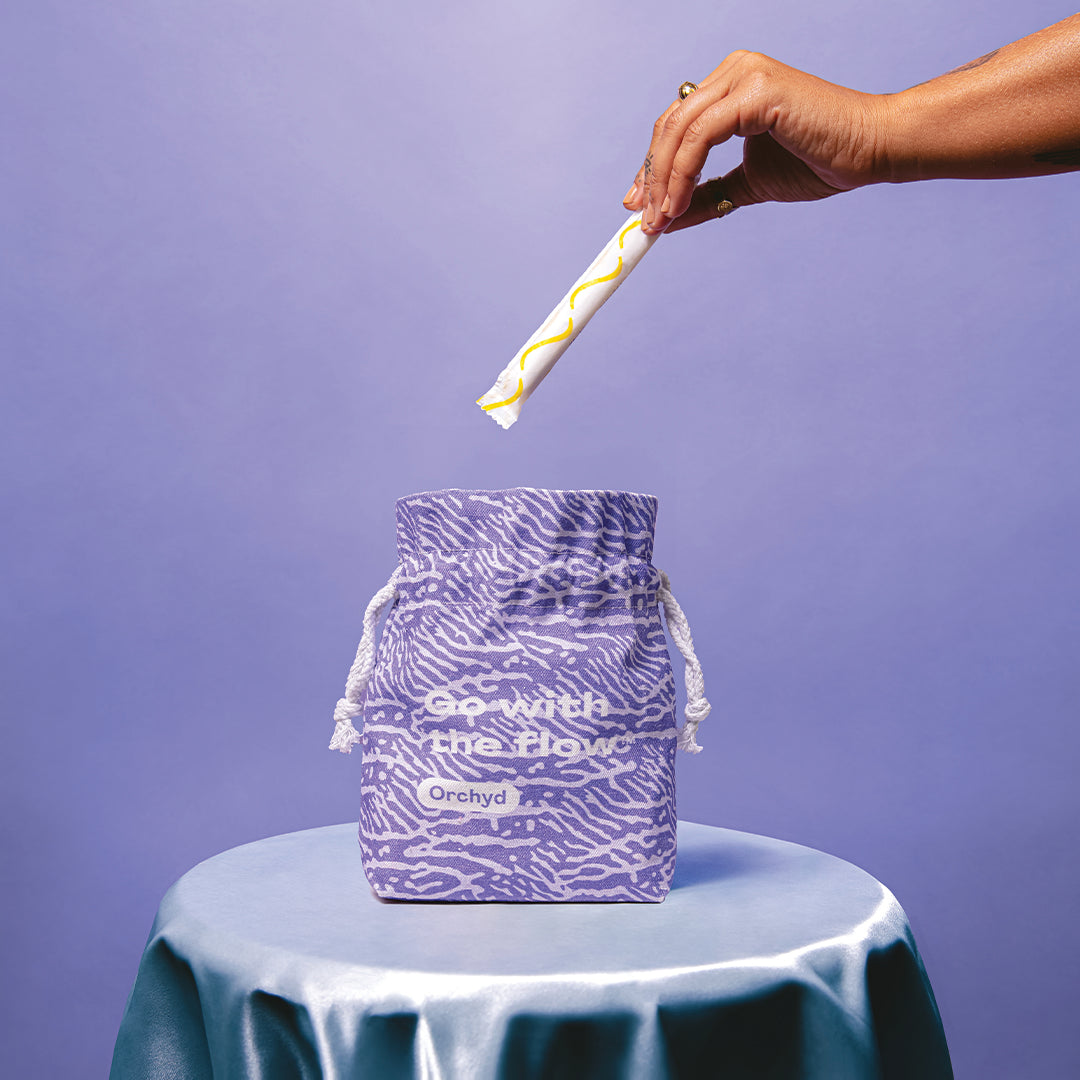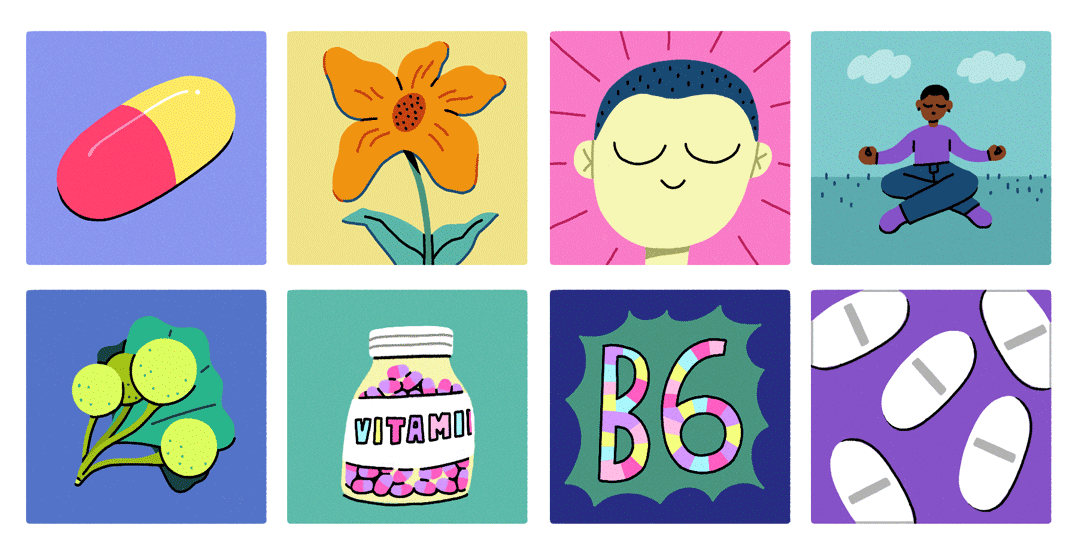 PMS is no laughing matter. In fact, for many women and other people who menstruate, it can be downright debilitating. Between mood swings, monthly bouts of depression, cramps, and bloating, this time of the month can leave many things left to be desired. While there are many over-the-counter medicines you can take to ease your pains and discomforts, nature also offers several remedies that can remove your distress and calm your body and mind. Many people prefer homeopathic remedies, as they're more natural than factory-produced options and often provide the same (or similar) results. With this in mind, let's take a look at some homeopathic PMS solutions you might consider when your next period rolls around.
PMS is no laughing matter. In fact, for many women and other people who menstruate, it can be downright debilitating. Between mood swings, monthly bouts of depression, cramps, and bloating, this time of the month can leave many things left to be desired. While there are many over-the-counter medicines you can take to ease your pains and discomforts, nature also offers several remedies that can remove your distress and calm your body and mind. Many people prefer homeopathic remedies, as they're more natural than factory-produced options and often provide the same (or similar) results. With this in mind, let's take a look at some homeopathic PMS solutions you might consider when your next period rolls around.
What Is PMS?
First, let's back up a little. Let's talk about PMS. PMS stands for premenstrual syndrome. Per its name, it usually occurs just before your period starts. During this time, some people have more tender breasts or begin to have cravings for certain foods. Those symptoms are usually no big deal. However, for many women and other people who menstruate, PMS symptoms can put a full stop to their daily lives as they deal with emotional, physical, and behavioral changes that seem impossible to wrangle with. Fortunately, once your period starts, your PMS symptoms should go away, but getting to that point of peaceful bliss can be tough on menstruating individuals, their families, and the people who surround them.
Why Choose Homeopathic PMS Solutions
Homeopathic treatments—or those which use the elements found in plants and natural substances to heal the body—are often preferred because they don't contain machine-made chemicals or products. No matter what types of PMS symptoms you suffer from, there's probably a plant or practice that can lead you to more comfort in the days or weeks leading up to your period.
Calcium
Often, people who are suffering from PMS don't get enough calcium. Calcium levels can also change when you're on your period. If you don't get enough calcium into your body, you could experience more fatigue and bloating than you otherwise would. Before you try calcium supplements, consider upping the dosage of calcium you get in your daily diet. Seeds, cheese, yogurt, and canned salmon are great ways to up the calcium ante.
Diet
Okay, so calcium aside, it's crucial to maintain a well-balanced diet all the time, but it's especially important when you're PMSing. Try to limit your sugar intake and increase your consumption of carbs. It's also a good idea to limit sodium intake, which can constitute water retention and breast swelling and tenderness.
Exercise
You might not feel like getting into your gym clothes, but you'll feel so much better once you accomplish this task. Instead of power-lifting, opt for aerobic exercises such as swimming, brisk walking, or jogging to get the blood flowing. Exercise helps boost endorphins and serotonin—both of which are good for positive moods.
Stress Management
Try incorporating some breathing exercises or mindful meditation into your day. Even if you only step away from your computer for ten minutes, you might realize some significant relief from your meditative practice. Yoga is also a great way to manage stress and leave your troubles off the mat. Allow yourself the time to practice quietness and calmness in the space of your choice so you can breathe into your feelings, emotions, and discomforts.
Acupuncture
Acupuncture may help reduce overall mood and physical PMS symptoms, according to Cochrane.org. Look for an acupuncturist who provides gentle, soothing infrared heat to the acupuncture points on your lower abdomen and lumbar sacrum region if you suffer from severe cramping. Regular acupuncture treatment can help balance hormonal functions and the autonomic nervous system.
Vitamin B6
Vitamin B6 helps your body produce neurotransmitters, which are responsible for regulating your mood. You'll find it in foods such as chickpeas, tuna, salmon, potatoes, and organ meats. Some studies show that regular amounts of vitamin B6 (at 80 mg per day) can help deter the psychological side effects of PMS.
Magnesium
Low levels of magnesium might be attributable to insomnia, water retention, depression, anxiety, and breast tenderness—each of which can be exasperated while experiencing PMS. Magnesium can be found in foods such as green leafy veggies, almonds, and peanuts, but there is also an assortment of supplements available if you think you're deficient in magnesium. Be sure to talk to your doctor before taking any magnesium supplements to ensure you're not impeding other nutrients from gaining access to your body.
Essential Fatty Acids
Some fatty acids have properties that reduce the inflammation that PMS can cause. Gamma-linoleic acid and alpha-linolenic acid are two types of fatty acids that might help reduce PMS symptoms. Salmon is a renowned food when it comes to delivering high quantities of essential fatty acids. Cod liver oil, flax seeds, and walnuts also rank high on the food chain.
Ginkgo Biloba
Ginkgo biloba has made its name in the memory game, but it can also help reduce PMS symptoms. It's shown to reduce the severity of both physical and mental effects caused by PMS. Be advised, however, that this herb can have severe interactions with certain medications. If you take blood thinners, have diabetes, or are unsure how your current medications might be impacted by a ginkgo biloba supplement, always speak to your doctor before beginning a new regimen.
John's Wort
St. John's wort is considered by many to be a natural antidepressant. It affects both serotonin and norepinephrine—two elements can affect your mood and which antidepressants traditionally target. If you suffer from severe mood changes during PMS, it might help level you out. It's important to note that St. John's wort can interact with many different types of medications and can be a pretty powerful source of intervention on existing treatments. Be sure to speak to your physician before adding this supplement to your routine.
Chasteberry
Chasteberry has been shown to alleviate bloating, breast pain, and headaches associated with PMS. It might even be helpful for menstruating individuals who suffer from mood swings during this time. It is important to note, chasteberry may decrease the effectiveness of hormonal contraceptives and hormone replacement medication or therapy. As always, be sure to meet with your physician before adding chasteberry to your daily diet.
If you suffer from PMS, remember that you're not alone. Many people deal with mood swings, bloating, cramps, and other uncomfortable situations every day. Fortunately, there are some homeopathic remedies you can turn to if you don't want to deal with over-the-counter meds and prescriptions. Take care of your body, and be sure to get enough rest, water, and healthy foods. By adding these homeopathic solutions to your premenstrual days or weeks, you might be able to endure less pain and discomfort.


